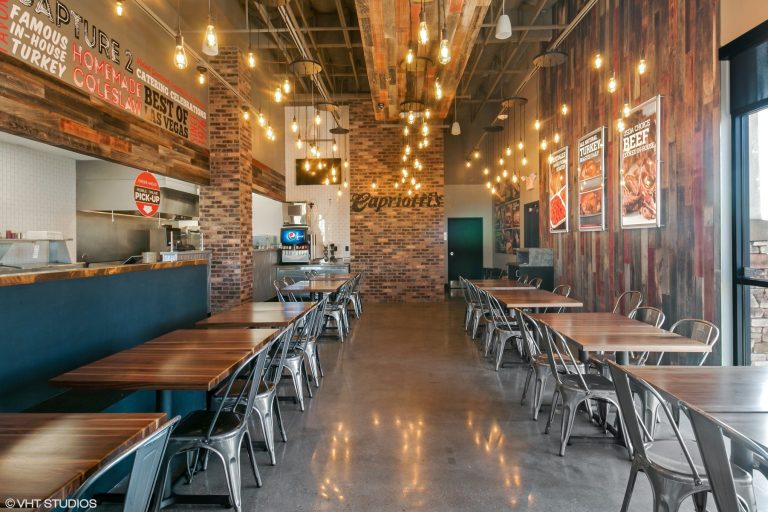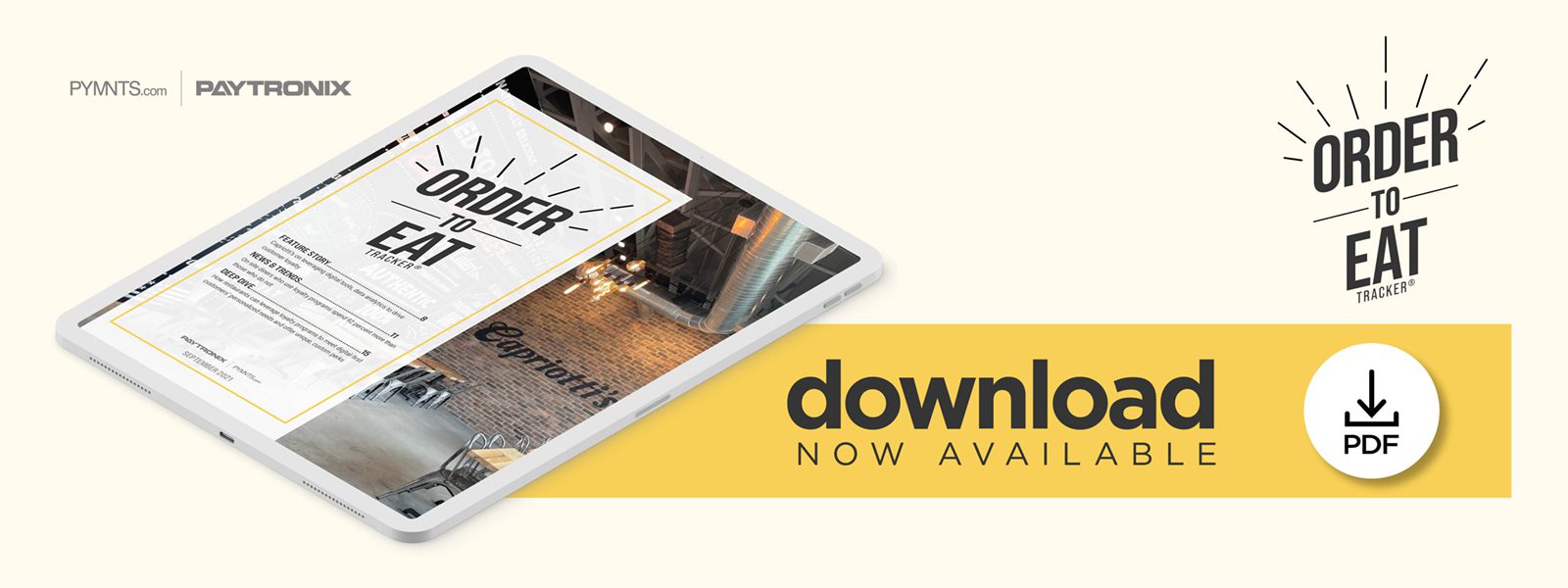Capriotti’s on Leveraging Digital Tools, Data Analytics to Drive Customer Loyalty

Restaurant customers are no longer bound to one ordering channel, which means their rewards shouldn’t be either. In the Order To Eat Tracker, Jane McPherson, senior vice president of Capriotti’s Sandwich Shop, discusses how the fast casual chain leverages data analytics to customize its reward incentives and deliver them on the right channel to boost redemption.
The boom in online food ordering has prompted restaurant operators to continue seeking digital methods that can help them attract and retain customers in an increasingly competitive landscape.
Eateries constantly are refining their customer engagement strategies to extend their brand awareness and grow sales. Recent efforts have included omnichannel marketing initiatives, mobile app developments and loyalty program launches.
Leveraging multiple marketing channels and incorporating loyalty and rewards offerings are top priorities, especially for national restaurant brands such as Capriotti’s Sandwich Shop. The Nevada-based fast casual chain has 112 company-owned and franchise locations across 16 states and the District of Columbia. Capriotti’s properties also include Wing Zone, an Atlanta-based chicken wing chain with 80 locations across 25 states.
“Everyone in the industry saw the big swing to online ordering,” said Jane McPherson, Capriotti’s senior vice president of Marketing. “We were really fortunate in that we had so much of our infrastructure really well built out. We had a really robust online ordering platform, and we were well-optimized. We quickly implemented a robust curbside pickup solution, offering customers the opportunity to [scan] a QR code and place an order from outside of the store.”
McPherson spoke to PYMNTS about why restaurants must turn to digital solutions, data analytics and omnichannel marketing to boost sales, customer engagement and loyalty.
The Changing Post-Pandemic Fast Casual Restaurant Landscape
Many pandemic-related dining restrictions began easing last spring as vaccination efforts ramped up, with customers heading back into their favorite restaurants for meals. McPherson said Capriotti’s brick-and-mortar business began to grow again during this time, with 30% to 40% of its customers coming into its restaurants and 10% placing orders over the phone.
“The past few months have been interesting,” she said. “We’ve seen, specifically for Capriotti’s, a real return to dining in, or at least ordering in, restaurants. What’s really maintained stability through all of this, for both Wing Zone and Capriotti’s, is phone ordering, [with] people calling in and placing orders.”
This ongoing interest in phone ordering has prompted Capriotti’s to test systems to increase customer engagement over the phone. This includes the use of switchboards that provide customer relationship management features as well as tools to help the chain upsell, McPherson said.
Despite the resurgence in in-person ordering and customers’ strong use of phone-based ordering methods, online ordering remains a mainstay for many restaurants. Capriotti’s is no exception to this trend, McPherson explained.
“We saw as much as 60% to 70% of our business shift [to] digital,” she said. “We’re back down to about 50%[and] Wing Zone has remained [at] about 80%.”
Using Data Analytics to Grow Brick-and-Mortar and Online Sales
Restaurants customers’ varied ordering habits make it critical for eateries to personalize engagement and reward loyalty across numerous ordering channels. McPherson said Capriotti’s omnichannel approach allowed the chain to further customize offers based on a multitude of customer preferences.
“When customers engage in the shop, they check in and redeem their points,” she said. “To grow online sales, we’re using omnichannel marketing to reach different segments of customers. We’re able to build segmentation into our campaigns, so [customers who order turkey meal items] get turkey campaigns, and [for] cheese steak customers, we send out a few steak campaigns.”
She said the company also is deploying data analytics to inform its sales and marketing efforts, manage its loyalty program and personalize the consumer engagement experience across various communication channels.
“We are working to add a layer of customized user experience on top of customer data,” McPherson said. “Restaurant brands will probably start using more customer database platforms [whereby] all of their customer data is [on] one platform, and then omnichannel marketing sits on top of that customer database platform.”
Capriotti’s has used an email-based loyalty campaign for the last eight years, but McPherson said the chain has branched out to other channels, adding text message-based campaigns as well as more segmentation and a focus on customer journeys.
“We communicate with consumers via an app push message, SMS message or email message,” McPherson said. “We engage with them in the way they want to opt in and participate in our campaigns.”
Appealing to first-time customers is yet another facet central to success in the fast casual restaurant space, and data analytics can be a key benefit in this area as well. McPherson said Capriotti’s uses this data to convert browsers into buyers, primarily with the help of digital advertising campaigns on social media, YouTube and via Google searches.
“We do a lot of sophisticated analysis to advertise to the right people,” she explained. “We do a lot of tracking with Google Analytics to look at our conversion rates and continually optimize those media for performance.”
Restaurant customers’ ordering and loyalty preferences are fluctuating rapidly, making it critical for eateries to stay on top of the latest ordering trends and technologies. Meeting customers’ expectations and offering them the rewards they value make harnessing data analytics and leveraging omnichannel marketing strategies essential.
